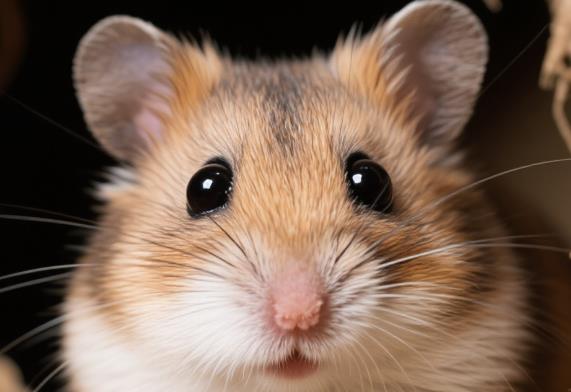Hamsters may eat their own offspring under specific circumstances. While this behavior seems cruel, it occurs both in the wild and in captivity, mainly due to factors like survival pressure, environmental disturbance, the health of the pups, and the mother hamster’s inexperience. Below is a detailed analysis:

I. Common Reasons Hamsters Eat Their Pups
Survival Pressure and Nutritional Needs
In the wild: When food is scarce or the climate is harsh, mother hamsters may eat their pups to replenish nutrients, improve their own survival rate, and prepare for future reproduction.
In captivity: If the owner fails to provide sufficient food (such as protein and fat), mother hamsters may eat their pups due to hunger or nutrient deficiency. For example, long-term feeding of a single type of grain can lead to nutritional imbalance in the mother.
Environmental Disturbance and Stress Response
Frequent disturbance: Mother hamsters need a quiet environment after giving birth. If the owner frequently checks or touches the pups, or if the cage is approached by other pets (such as cats or dogs), the mother may eat her pups due to stress.
Scent changes: If the owner touches the pups directly with their hands, human scent may be left on the pups. This can cause the mother to mistake the pups for "foreign objects" and attack them.
Health of the Pups
Congenital defects: If a pup is weak, deformed, or unable to breathe normally at birth, the mother hamster may actively eliminate these pups to focus on caring for healthy offspring.
Dead pups: Mother hamsters will clean up the bodies of dead pups to prevent rot and bacterial growth. However, this behavior may be mistaken for "eating pups."
Mother Hamster’s Inexperience
First-time mothers: Young or first-time mother hamsters may become nervous due to lack of experience and accidentally harm their pups. For example, the mother may exert too much force when moving a pup, causing its death, and then eat the body.
II. How to Prevent Hamsters from Eating Their Pups
Provide Sufficient Food and Nutrition
During lactation, mother hamsters need high-protein and high-fat foods, such as mealworms, boiled chicken breast, and special lactation hamster food.
Ensure the food bowl always has food to prevent the mother from feeling anxious due to hunger.
Create a Quiet Environment
Place the cage in a quiet, undisturbed corner, away from direct sunlight or noise.
Reduce interaction with the mother hamster within 1 week after delivery; only check the pups’ condition through observation.
Avoid Scent Disturbance
Do not touch the pups directly with your hands. If you need to move a pup, use clean tweezers or wear gloves.
When cleaning the cage, keep some of the old bedding to retain the mother’s familiar scent.
Separate Cages (When Necessary)
If the male hamster is housed with the mother, separate the male into another cage before delivery to prevent him from disturbing or harming the pups.
If the mother hamster repeatedly eats her pups, consider permanent cage separation for her.
III. Notes on Special Cases
Male hamsters’ behavior: Male hamsters usually do not take the initiative to care for pups; they may even attack them. Therefore, the male hamster must be moved out of the cage immediately after the mother gives birth.
Limitations of human intervention: If the mother hamster has already eaten some pups, the survival rate of the remaining pups may decrease. Forcing intervention at this time (such as removing the mother) may cause the remaining pups to die due to lack of care. It is recommended to prioritize improving the environment rather than directly separating the mother from the pups.
